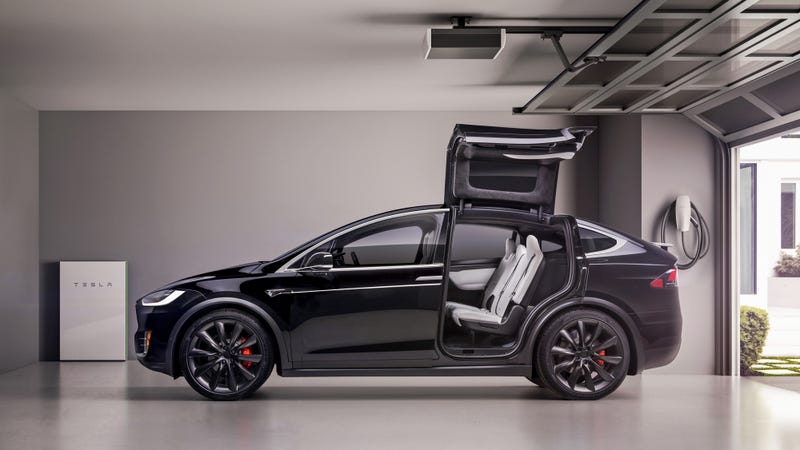
Electric motors guzzle electricity, which can be especially hard on a rechargeable battery. The power cells used in electric vehicles, like Teslas, have an expected lifespan of around 300,000 to 500,000 miles, but a team of battery researchers believes it has come up with a recipe that can double that, leading to batteries that could potentially outlast the electric car itself.
Advertisement
In a paper published in the The Journal of the Electrochemical Societyearlier this month, battery researchers from Halifax, Nova Scotia’s Dalhousie University describe a new lithium-ion battery that could potentially power an electric vehicle for over one million miles and over 4,000 charging cycles while only losing about 10 percent of its charging capacity (and vehicle range) as it reaches the end of its lifespan. Most drivers upgrade their rides well before the odometer rolls over to one million, but the new battery tech could be especially useful in vehicles that are on the road around the clock like taxis, shuttles, and even delivery trucks.
Like the ingredients of a fast-food chain’s “special sauce,” the chemical makeup of batteries, which governs how well they perform and how long they last, are usually a closely guarded secret. Since 2016, the Dalhousie team has actually been conducting its research on improving lithium-ion batteries exclusively for Tesla, but this paper divulges exactly how they came up with a recipe for a million-mile electric car battery by optimizing all of the ingredients, which includes artificial graphite, and then improving the nanostructure of the lithium nickel manganese cobalt oxide to create a crystal structure that’s less likely to crack and degrade performance. The exact recipe allows all of Tesla’s competitors to improve their own battery tech, so what’s going on?
According to Wired, who spoke to former researchers who worked in the Dalhousie lab, by publishing the most important details of this research, it provides a new performance benchmark for all of the other R&D labs working on improving battery tech, so, ideally, a million miles of battery life is just the beginning. But Elon Musk is not one to simply give away valuable research without a backup plan, and as Wired points out, just days after this paper was published, Tesla was awarded a patent for a new electric vehicle battery featuring nearly the exact same chemical makeup as the ones detailed in the research paper. One of the inventors listed in the new patent was physicist Jeff Dahn, who just so happens to lead Dalhousie University’s battery lab.
The exact details of Tesla’s newly patented lithium-ion battery aren’t known, but former researchers who worked alongside Dahn believe there’s a very good chance it already outperforms the battery detailed in the research paper. It’s also unknown when Tesla would put the new battery into production, but there will undoubtedly be plenty of fanfare when Musk officially debuts it to the world.
Advertisement













